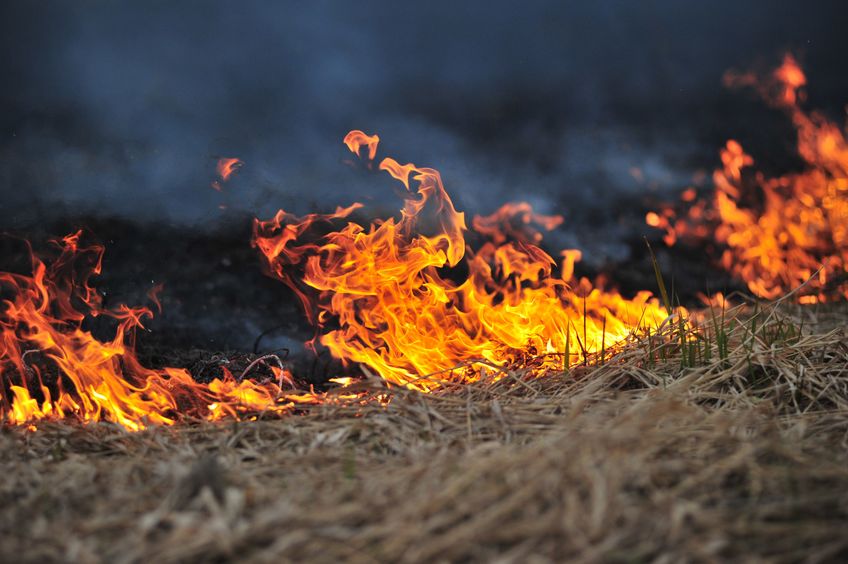
Farmers are being urged to put in place new prevention and control plans as the cost of farm fires shot up a staggering 40% to over £69 million last year.
Electrical faults were a major cause of farm fires in 2020, according to NFU Mutual, which insures three quarters of UK farms.
Extreme weather and dry conditions also contributed to the huge cost of farm blazes last year.
The insurer said fire spreading from electrical cabinets underlined the importance of regular inspections by competent professionals.
It added that farmers should also regularly dust-downs and ensure clear space around control panels to help prevent incidents.
Fires involving increasingly popular biomass boilers were an alarming new trend identified from NFU Mutual’s claims data as more farmers look to alternative fuel sources.
However, the insurer said that a system of servicing and maintenance, along with good housekeeping and waste disposal procedures can help mitigate risks.
Agricultural vehicle fires accounted for an additional £20m during 2020. Fires writing off combine harvesters - which can cost up to £850,000 - prompted the insurer to encourage farmers to fit accredited fire suppression systems.
Evita Van Gestel of NFU Mutual Risk Management Services Ltd works with farmers to help reduce the risks in their fields and farmyards.
She said it was vital for farmers to have an emergency plan in place to protect everyone who might live on, work at and visit the farm.
“Farm fires put lives at risk as well as causing devastating damage and putting the future of farm businesses under threat," she added.
“Most fires are preventable by carrying out routine maintenance and inspection on heating systems, electrical installations and machinery, and controlling hot works within farm workshops.
"Implementing and maintaining good standards of housekeeping, particularly around the storage of combustibles and flammables such as hay, straw and fuels, will also reduce the risk of a fire spreading."
The cost and number of farm fires rose significantly last year. The East was the worst-affected region by cost in 2020, totalling £21.5m.
Northern Ireland was the second worst-affected region where fire claims cost £14.7m, up from £2.7m in 2019, followed by the South West where claims reached £8m, up from £5.9m.
How do I decrease the risk of fire?
NFU Mutual Risk Management Services has issued farmers and landowners five safety tips to help decrease the risk of fire on their properties:
• Have a plan in place – Put people at the heart of your fire plan and ensure everyone on site knows what to do in the event of a fire.
• Don’t mess with electrics - Don’t try and attempt electrical work yourself and always use a qualified and competent electrician for work and inspections.
• Suppress the risk – suppression systems are a major game changer for the industry and play a critical role detecting, containing and extinguishing fire.
• Keep on top of your housekeeping – Good housekeeping is absolutely essential to ensure materials and machinery are stored correctly and to eliminate dust and debris.
• Control hot work – Welding, cutting or grinding equipment, along with blow lamps and blow torches can produce sparks which spread quickly.
